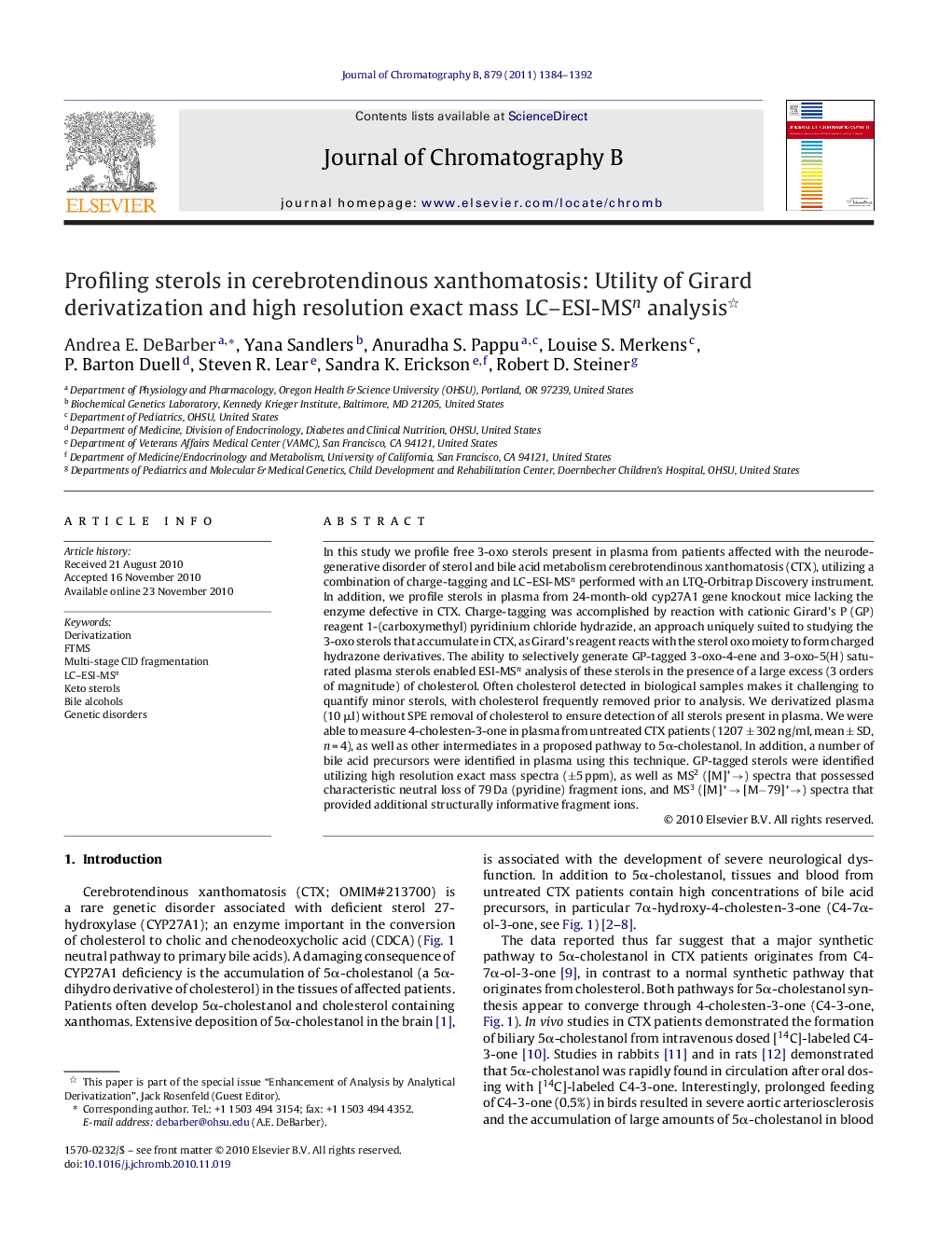| Article ID | Journal | Published Year | Pages | File Type |
|---|---|---|---|---|
| 1213431 | Journal of Chromatography B | 2011 | 9 Pages |
In this study we profile free 3-oxo sterols present in plasma from patients affected with the neurodegenerative disorder of sterol and bile acid metabolism cerebrotendinous xanthomatosis (CTX), utilizing a combination of charge-tagging and LC–ESI-MSn performed with an LTQ-Orbitrap Discovery instrument. In addition, we profile sterols in plasma from 24-month-old cyp27A1 gene knockout mice lacking the enzyme defective in CTX. Charge-tagging was accomplished by reaction with cationic Girard's P (GP) reagent 1-(carboxymethyl) pyridinium chloride hydrazide, an approach uniquely suited to studying the 3-oxo sterols that accumulate in CTX, as Girard's reagent reacts with the sterol oxo moiety to form charged hydrazone derivatives. The ability to selectively generate GP-tagged 3-oxo-4-ene and 3-oxo-5(H) saturated plasma sterols enabled ESI-MSn analysis of these sterols in the presence of a large excess (3 orders of magnitude) of cholesterol. Often cholesterol detected in biological samples makes it challenging to quantify minor sterols, with cholesterol frequently removed prior to analysis. We derivatized plasma (10 μl) without SPE removal of cholesterol to ensure detection of all sterols present in plasma. We were able to measure 4-cholesten-3-one in plasma from untreated CTX patients (1207 ± 302 ng/ml, mean ± SD, n = 4), as well as other intermediates in a proposed pathway to 5α-cholestanol. In addition, a number of bile acid precursors were identified in plasma using this technique. GP-tagged sterols were identified utilizing high resolution exact mass spectra (±5 ppm), as well as MS2 ([M]+→) spectra that possessed characteristic neutral loss of 79 Da (pyridine) fragment ions, and MS3 ([M]+ → [M−79]+→) spectra that provided additional structurally informative fragment ions.
